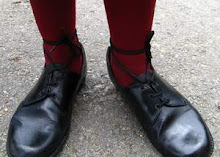10 TIPS FOR BETTER SLEEP
1. STICK TO A SCHEDULE: Stick to a schedule, and don't sleep late on weekends. If you sleep late on Saturday and Sunday morning, you'll get Sunday night insomnia. Instead, go to bed and get up at about the same time every day.
"You don't need to rely on an alarm clock to wake up when you get enough sleep," says Dr. Shepard.
2. DON'T EAT OR DRINK BEFORE BEDTIME: Eat a light dinner about two hours before sleeping. If you drink too much liquid before sleeping, you'll wake up repeatedly in the night for trips to the bathroom.
Don't eat spicy or fatty foods. They can cause heartburn, which may interfere with your sleep.
If you get the bedtime munchies, eat something that triggers serotonin, which makes you sleepy. Carbohydrates (bread or cereal) or foods containing the amino acid L-tryptophan (milk, tuna, or turkey) will do the trick.
Don't drink alcohol near bedtime. It may cause you to wake up repeatedly, to snore, and it may exacerbate sleep apnea.
3. AVOID CAFFEINE AND NICOTINE: They're addictive stimulants and keep you awake. Smokers often experience withdrawal symptoms at night, and smoking in bed can be dangerous. Caffeine should be avoided for eight hours before your desired bedtime.
4. EXERCISE: If you're trying to sleep better, the best time to exercise is in the afternoon. A program of regular physical activity enhances the quality of nocturnal sleep.
5. COOL ROOM: A slightly cool room is ideal for sleeping. This mimics your internal temperature drop during sleep, so turn off the heat and save on fuel bills.
If you tend to get cold, use blankets. Try sleeping in warmer nightclothes and wear socks.
If you overheat at night, wear light nightclothes and sleep under a single sheet. Use an air conditioner or fan to keep the room cool.
Use a dehumidifier if you're bothered by moist air. Use a humidifier if you're bothered by dry air. Signs and symptoms of dry air irritation include a sore throat, nosebleeds and a dry throat.
6. SLEEP PRIMARILY AT NIGHT: Daytime naps steal hours from nighttime slumber. Limit daytime sleep to less than one hour, no later than 3 p.m.
If you work nights, keep your window coverings closed so that sunlight, which interferes with the body's internal clock, doesn't interrupt your sleep.
If you have a day job and sleep at night, but you still have trouble waking up, leave the window coverings open and let the sunlight wake you up.
7. KEEP IT QUIET: Silence is more conducive to sleep. Turn off the radio and TV. Use earplugs or a fan or some other source of constant, soothing, background noise to mask sounds you can't control, such as a busy street, trains, airplanes or even a snoring partner. Double-pane windows and heavy curtains also muffle outside noise.
8. MAKE YOUR BED: "A good bed is subjective and different for each person. Make sure you have a bed that is comfortable and offers orthopedic comfort," says Dr. Shepard.
If you share your bed, make sure there's enough room for two. Children and pets are often disruptive, so you may need to set limits on how often they sleep in your bed with you.
Use your bed only for sleep and sex.
Go to bed when you're tired and turn out the lights. If you don't fall asleep in 30 minutes, get up and do something else. Go back to bed when you're tired.
Don't agonize over falling asleep. The stress will only prevent sleep.
9. SOAK AND SACK OUT: Taking a hot shower or bath before bed helps bring on sleep because they can relax tense muscles.
10. DON'T RELY ON SLEEPING PILLS: Check with your doctor before using sleeping pills. Doctors generally recommend using sleeping pills for up to four weeks. Make sure the pills won't interact with other medications or with an existing medical condition. If you do take a sleep medication, reduce the dosage gradually when you want to quit.
Use the lowest dosage, and never mix alcohol and sleeping pills.
If you feel sleepy or dizzy during the day, talk to your doctor about changing the dosage or discontinuing the pills.
Sleep Important for All Ages
Sleep is important for all ages. Generally, babies need 16 hours of sleep (intermittent throughout the day/night), very young children 12 hours, older children and teenagers as much as 10, and adults need about 8 hours.
One way to find out the optimal amount of sleep your kids need is, on the weekend, they need to get in bed at the usual time, say by 9pm, and sleep for as long as they want. The length of time they sleep is probably what they need.
Lack of sleep negatively impact children's behavior and school performance.
2009-02-15
Subscribe to:
Post Comments (Atom)

No comments:
Post a Comment